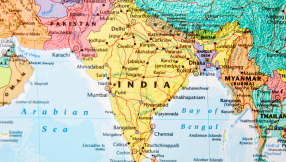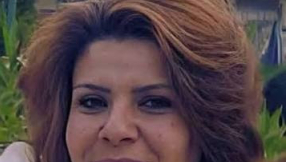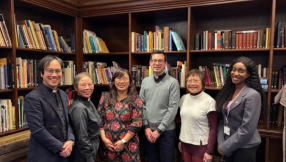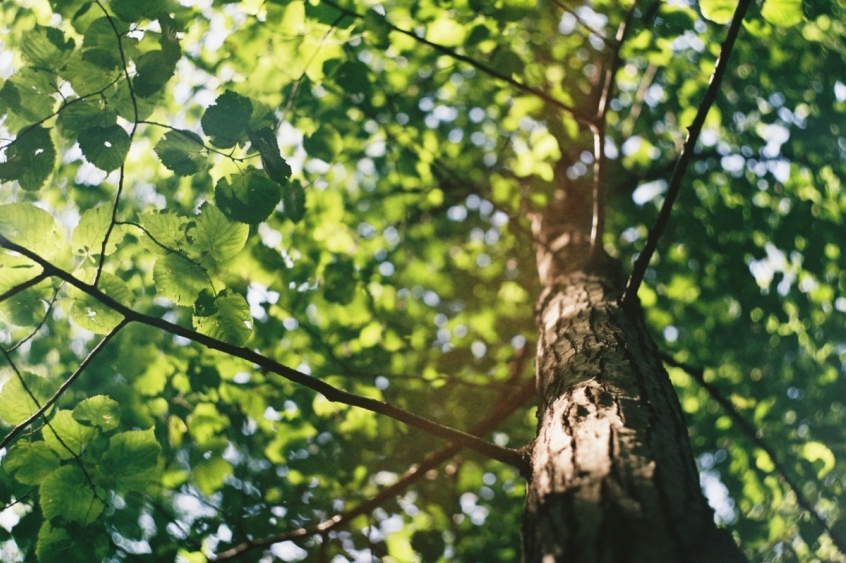
There has recently been a great deal of discussion about the threat we face from climate change, with many activists insisting that we should all give up meat and dairy, and become vegan. Indeed, for many, veganism is no longer simply a dietary choice, but has now been granted the same protection as a religion.
As winter slowly morphs into spring, which has come all too soon in some areas, with bushfires in Australia, and overheating and floods in the Arctic, Norway, Russia and this country, to name but a few, there is no doubt that the world must remain vigilant.
And it is sad indeed that no-one has reported on the recent floods in the State of Israel, the Holy Land to so many, which have so far claimed at least seven lives, all in areas I know well, including in Tel Aviv, where one daughter lives, and also the Haifa region, where another daughter, son-in-law and grandchildren live, together with some of my closest friends. In Galilee, the floods have claimed the life of a shepherd.
Northern Israel has, in the space of a week, broken the 50-year record for rainfall, while the south of the country has experienced the greatest rainfall since records began.
As a result of its normally very dry climate, Israel has always insisted on stringent domestic water control – meters are compulsory – and if you go over the allotted limit by one iota in any given week, your friendly neighbourhood council will be in touch with you straight away to get you back on track!
So what exactly is going on in the world? I remember the astonishingly hot summers in Greater Manchester of 1975, when our first child was born and we put her out in the garden overnight simply for air, and ditto in 1976. So how new is climate change, and does it mean that things are getting worse, or has the weather always been changeable and unpredictable?
Interestingly, we have four high profile figures from different generations and quite different backgrounds all saying the same thing – that we need more research and action regarding the world's weather and climate issues. They are Greta Thunberg, who needs no introduction; another giant in the environmental world, Sir David Attenborough; my good friend, the former Archbishop of Canterbury, Dr Rowan Williams; and Prince William, who has just launched his multi-million pound Earthshot prize. Can they all be wrong, I wonder.
Sadly, some of the green activists I have tried to engage in conversation with have simply spouted the normal far-left propaganda demeaning Israel as the pariah Jew of the world. I have always been suspicious of green activists, given their history of antisemitism, something that Extinction Rebellion has not been immune from either.
However, the more bigoted activists in the green movement may be interested to learn that the State of Israel is in fact streets ahead of most other places in water conservation and that, according to the Guardian, Tel Aviv, the most Jewishly highly-populated city in the world, is also the world's vegan capital.
My friend, the Chief Rabbi of Haifa, a strict vegetarian, was only one in a long line of rabbinic scholars who encouraged vegetarianism and was the President of the Israel Vegetarian and Vegan Society – though stressing that for those who eat meat, kosher is best.
But a care for nature has deep roots in the Jewish faith, being marked in our calendar in a unique way once a year.
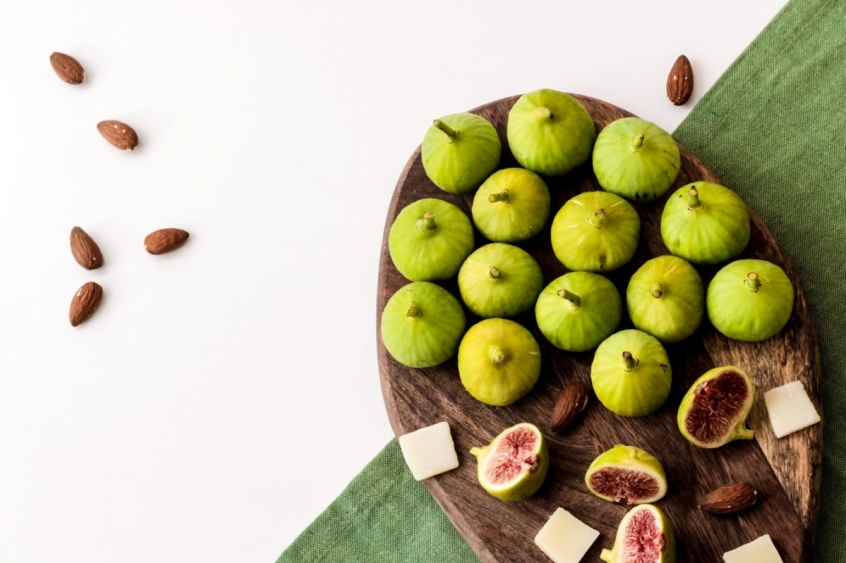
You will have heard of the Jewish New Year which takes place in early autumn, around the time of the new academic year, and is known in Hebrew as Rosh Hashanah, 'the Head of the Year'. That's when we celebrate eating apples and honey, take two days off work and begin the 'High Holy Days', culminating 10 days later in the Day of Atonement and Succot, when we build little huts outside and allow G-d to look after us for one week of our lives, whatever the weather.
And then in spring, we celebrate, around the end of one tax year and start of the next, the festival of Pesach, Passover, the time when we recall G-d bringing us out of Egypt and freeing us from slavery in order to lead lives as Jews in the Promised Land.
Then in between these is the New Year for animals, which takes place at late summer, early autumn, in Elul, a time for reflection.
But the one Jewish New Year that is truly joyous and wonderful, because it is part of a daily life that doesn't break off from customary, everyday matters, is the New Year for Trees, which takes place between winter and spring, in the middle of the month of Shvat, occurring in January or February. This festival is known as Tu BShvat.
My elder daughter was born at this time. It was unseasonably warm in Greater Manchester all those years ago in early February when contractions started and I went for a walk – coatless - in the fields near my home – waiting to have the home delivery that I so much anticipated and to which my doctor had agreed. Everything went fine and then when she was eight and accompanied by her little sister aged six months, we spent a year on sabbatical in Israel and my Tu B'Shvat child attended an observant Jewish school in Jerusalem, near to Yad Vashem and to the Jerusalem Forest where, incidentally, her sister learned to walk!
There were lots of ups and downs that year, the main problem being when the old-fashioned boiler burst during a torrential downpour and cold spell at Pesach, and we couldn't do anything about it until the next day. But the highlight of our stay, at least for her, was what happened on New Year for Trees 1984, around her 9<sup>th birthday.
On Tu B'Shvat, the entire school piled into trucks and lorries, together with teachers and parents, and travelled a short distance to the Jerusalem Forest, where they all got out and together planted new trees and flowers to herald the onset of very early spring and the eternal greening of Israel.
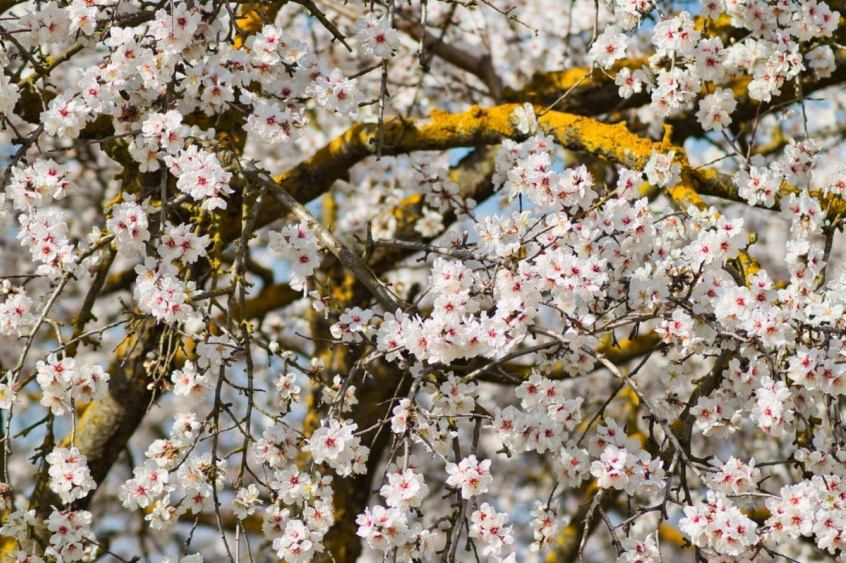
The date coincides with the appearance of the first almond blossoms in Israel. In in Hebrew, it is called shaked, an anagram of kadosh, which means 'holy', while shaked itself means 'wake up', as in readings in synagogue at this time of year. There are some beautiful explanations of the concept of Tu Bshvat and the importance of blossoms from the religious college based in Jerusalem where I studied all those years ago in 1983-4 and where my daughter studied 10 years later.
And please bear in mind that the word for 'tree' in Hebrew also means 'advice' and 'counsel', as in 'Mighty Counsellor' and 'counsel and might', as these phrases are translated in the King James version, written when Shakespeare's own work was maturing.
For the tree and the blossom have always had special connotations in Judaism, and this is why the best gift anyone could receive on marriage, or other joyous occasions, is a framed certificate wishing you happiness or offering you thanks and stating that a tree has been planted in your name in the Jerusalem Forest or elsewhere in the State of Israel.
Every time, probably hundreds, that I have given a talk to a Jewish group about some aspect of Jewish thought, history, or current politics, for instance, I have received to my great delight a framed certificate, stating that trees have been planted in my name in a forest in Israel – what an honour!
And this is also why the State of Israel has chosen to be a wise counsellor to the world, given its own historical record of afforestation and greening of the country, by offering to travel to all four quarters of the globe to teach others how to plant and nurture trees and, conversely, in cases where jungles have become unruly for instance, how to deforest correctly.
So, green issues, climate change and alterations to dietary habits do not have to be set out judgmentally, or involve the scapegoating of others. If we follow the way of Judaism in these matters, as in so many others, we can learn to love and cherish our planet gently and graciously, just as our upcoming festival of Tu B'Shvat teaches us. Happy planting.
Dr Irene Lancaster is a Jewish academic, author and translator who has established university courses on Jewish history, Jewish studies and the Hebrew Bible. She trained as a teacher in modern Languages and Religious Education.











